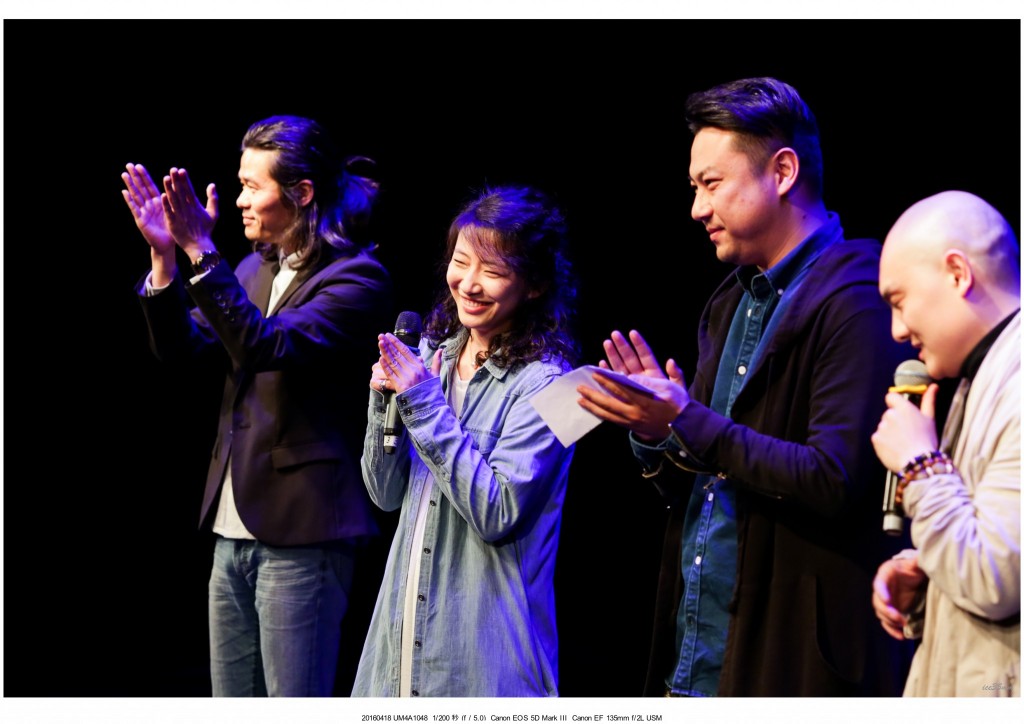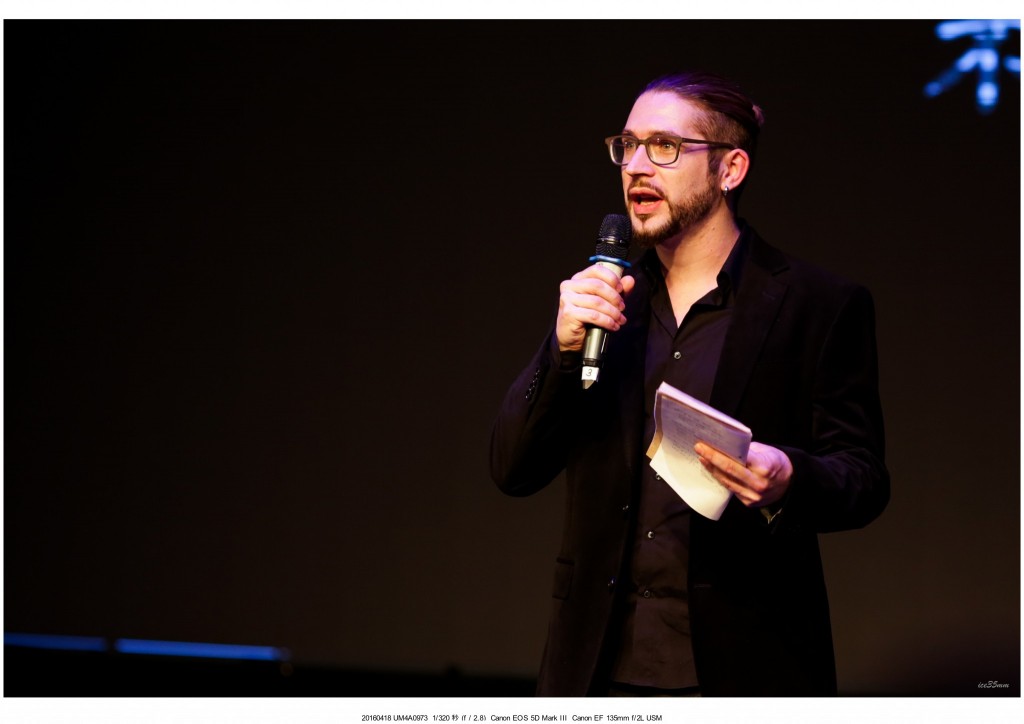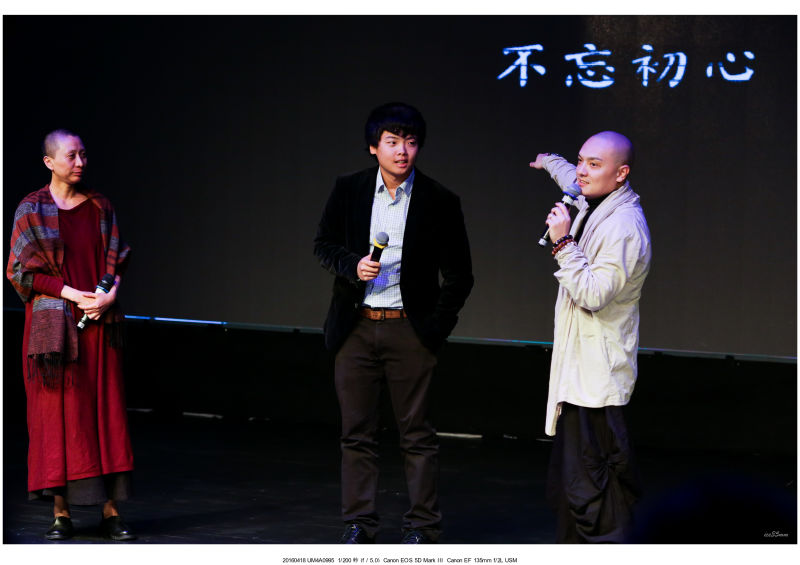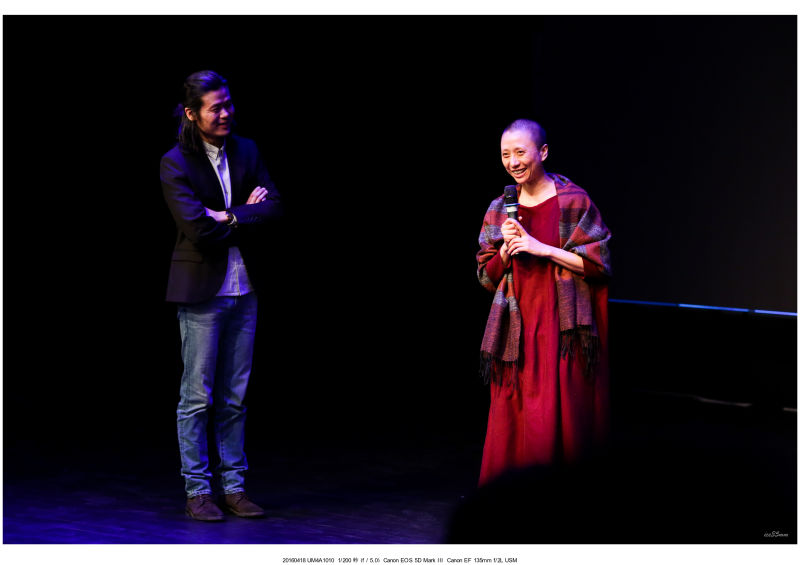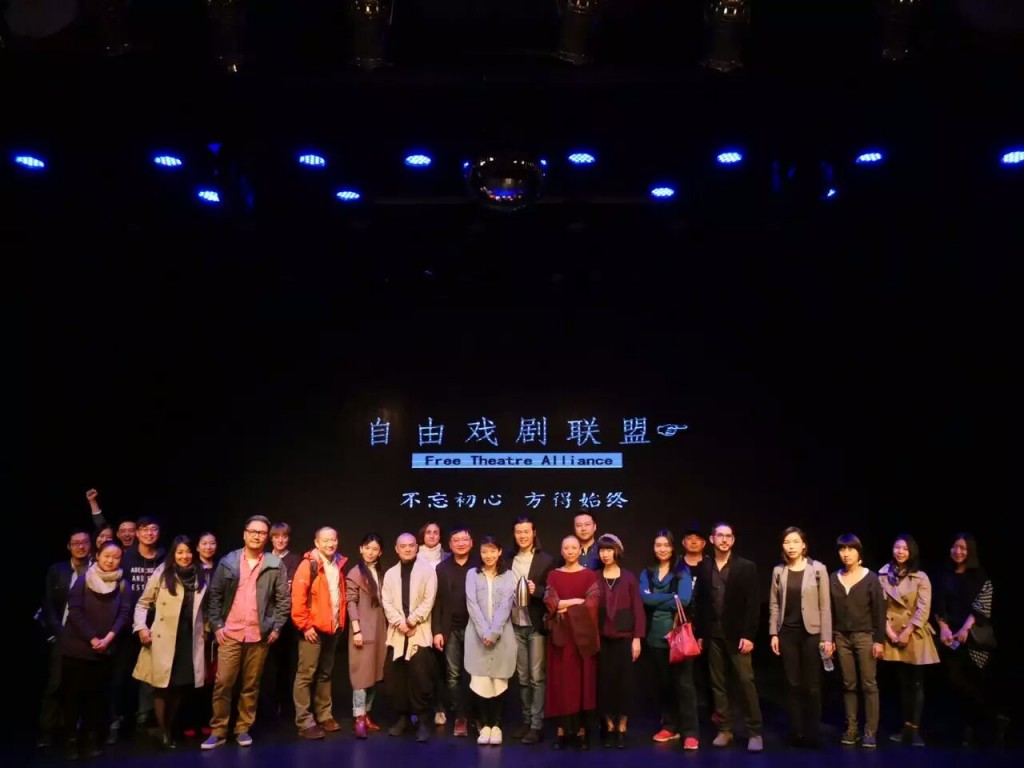-
Calendar 2026
Calendar 2025
Calendar 2024
Calendar 2023
Calendar 2022
Calendar 2021
Calendar 2020
-
Children of Ginko – Preview
31 October, Shanghai
-
Children of Ginko – Premiere
7-8 November, Shanghai,
Calendar 2019
-
Dance Dramaturgy 2.1
23-23 April, Aosai Space, Dali
-
New Text New Stage – “A Deal” Australian Premiere
23-31 August, Sydney
Calendar 2018
-
Web Traffic — A Multimedia Dance Theatre
Jan.5-7th , Shanghai International Dance Center
-
China ComingOUT – Creative Writing for LGBTQ Youth
31st Jan.-4th Feb. , Destination, Beijing.
-
SPEAK OUT: #1 LGBTQ&Perfromance BJ
7th, April , Italian Institute of Culture, Beijing
-
SPEAK OUT: #2 Performance&Performativity
8th, April , Xiaozhong Bookstore, Beijing
-
SPEAK OUT: #1 LGBTQ&Perfromance SH
10th, April , NEXTMIXING, Shanghai
-
SPEAK OUT: #1 LGBTQ&Perfromance GZ
12th, April , Ergao Dance Production Group, Guangzhou
-
SPEAK OUT : #3 Gender, Documentary and Activism
19th, May, Bookworm, Beijing
-
China ComingOUT – Creative Writing for LGBTQ Youth
23rd, May-26th, May , Zizai Studio, Shanghai
-
LookOUT- Arts Festival on Gender
July 6-15, 2018, Beijing, 798 Art District
-
Let You Be rerun in Beijing Penghao Theatre
26-27th, July , Penghao Theatre, Beijing
-
I Disappear Premiere in Beijing
28th, 29th, July , Penghao Theatre, Beijing
-
Dance Dramaturgy Workshop I
27th,Aug.-2nd, Sep., Free Theatre Alliance Rehearsal Center, Beijing
-
China ComingOUT——Creative Writing for LGBTQ Youth
25th-28th, October , There Art Center, Guangzhou
-
Dance Dramaturgy Workshop II
30th, Oct.-1st, Nov. , Free Theatre Alliance Rehearsal Center
-
MOVING WOR(L)DS – International forum on theatre & migration
7-17th December , Nanjing University, Nanjing, Jiangsu Province, China
Calendar 2017
-
“When Swallows Cry” South African Premiere Reviews
January, Market Theatre Complex, Newtown Johannesburg Gauteng South Africa
-
Frozen Songs Excerpts Presented at Shanghai Project Chapter 2 Opening
April , Shanghai Himalayas Museum
-
The Returning/ Winterreise with Chinese Cast Premiere in Shanghai
21st-23th, July, Shanghai Huangpu Theatre; 28th-29th, July, Penghao Theatre Beijing
-
I Disappear Stage Reading in Penghao Theatre Beijing
July 26th, 14:30/19:30 Penghao Theatre
-
Frozen Songs Premiere at The Arctic Theatre
September,7th, Tromsø, Norway, Arctic Theatre(Hålogaland Teater )
-
Disco-Teca at STOFF – Stockholm Fringe Festival
9th, September, Teater Tre, Stockholm, Sweden
-
Let You Be Premiere in Beijing
September, 25th-26th, 7:30pm Qinglan Theatre
-
Let You Be Tour in Hangzhou Contemporary Theatre Festival
28th, September, Zhejiang Province Culture Center Small Theatre.
-
Disco-Teca at We Festival of Future Shanghai
October, 7th-8th, No.6 Space, West Bund Camp 3399, Shanghai
-
New Text New Stage II Tatarstan Production Premiere
14th, 15th, 17th, October, 2017, Galiaskar Kamal Tatar National Academic Theatre, Tatarstan
-
New Text New Stage II Chinese/American Production Coming Up
Nov 15th-Dec.10th, Urban Stages Theatre, New York. Sep.24th-30th, Nanjing University, Jiangsu, China.
-
About My Parents and Their Child Touring in Shanghai
December, 9th-10th, Shanghai Dramatic Art Center 1933 Micro Theatre.
-
Contextualizing Dance Dramaturgy – Workshop Series BJ
Dec. 22nd , Goethe Institut China, Beijing
-
Contextualizing Dance Dramaturgy – Workshop Series GZ
Dec. 25th , Ergao Dance Production Group, Guangzhou
-
Contextualizing Dance Dramaturgy – Workshop Series SH
Dec. 30th , Camp 3399 #6 Space, Shanghai
Calendar 2016
-
Night Shift, Beijing rerun
8-9 January, Qinglan theatre, Beijing
-
Ghost 2.0, Beijing rerun
21st-24th, Jan. , Beijing Tianqiao Performing Arts Center
-
SEEDS – A Global Art and Media Project
1-11th, March, Drum Tower West Theatre, Beijing, China
-
Sleeping Beauties—Dancing & Multimedia Workshop Demonstration
6th, March, Drum Tower West Theatre, BJ
-
NEW TEXT, NEW STAGE II – Session 3
20th-26th, March , Guangzhou Dramatic Art Center. There Art Space in GZ
-
Free Theater Alliance – Launch of 1-2-3 Theatre
April, 18th, Qinglan Theater, Beijing
-
Jon Fosse’s Dream of Autumn BOOK LAUNCH
23 April, JEWELVARY Art & Boutique
-
PRACTICAL RETHORIC Workshop (SH)
6月19日, Internet Education Plaza, Shanghai
-
PRACTICAL RETHORIC Open Demonstration (GZ)
July 2, There Art Space, Guangzhou
-
Disco-teca Open Presentation (GZ)
July 9, Guangdong Times Museum, Guangzhou
-
PRACTICAL RETHORIC Open Demonstration(SH)
July 10, RSDBT. Shanghai
-
DISCO-TECA in Shanghai
July 12-13, 1933 Micro Theatre
-
Disco-teca Open Presentation (SH)
July 15, RSDBT, Shanghai
-
In the Field of Hope
July 18-19, Gulou West Theatre
-
About My Parent and Their Child
July23-24, Gulou West Theater · Beijing
-
DISCO-TECA in Beijing
July 23-24, Gulou West Theatre
-
Ghost 2.0 at Wuzhen Theatre Festival
13th, 14th October , Wuzhen, China
-
Workshop by Jon Tombre
12th-13th, November, FTA Rehearsal Space, Beijing
Calendar 2015
-
Practical Rhetoric – Workshop 1
13-18 March, Beijing, Here&Now Studio
-
New Takes on IBSEN
April, 22nd-26th, Shanghai, China
-
Ibsen in One Take – Shanghai 2015
23-24 April, Himalaya Center, Shanghai
-
Night Shift – Norwegian Tour
May 27, 30, Lilehammer, Oslo
-
Practical Rhetoric – Workshop 2
24-28 June, Beijing, Here&Now Studio
-
NEW TEXT, NEW STAGE II – Session 1
13-18 July 2015, Pioneer Theatre, Beijing
-
GHOSTS 2.0
7-9 August, McaM Museum, Shanghai
-
Comedy of Love, Premiere
30th, Sept.-4th, Oct., Penghao Theater, BJ
-
Practical Rhetoric – Workshop 3
3-7 October, Here&Now Studio, Beijing
-
Workshop on Jon Fosse
Oct. 5th-10th , Sheung Wan Municipal Services Building, HK
-
Practical Rhetoric: Launch at Norwegian Embassy
8 October, Norwegian Embassy, Beijing
-
DISCO-TECA, open workshops
10-14 October, Guangzhou
-
Practical Rhetoric:Workshop at Bernard Controls
10 October, Bernard Controls China, Beijing
-
NORA – Norwegian Tour 2015
October 28 - November 3, Bodø; Tromsø; Trondheim
-
DISCO-TECA, premiere
4-5 November, Gender Bender Festival, Bologna
-
Night Shift Guangzhou Tour
13-15th, November, Guangzhou Dramatic Art Center
-
NEW TEXT, NEW STAGE II – Session 2
Nov. 15th-22nd, Shanghai Ming Contemporary Museum, Shanghai Dramatic Art Center
-
Night Shift Shanghai Tour
21-22, November , Shanghai Dramatic Art Center
-
DISCO-TECA: live performances & media feedback
December, 17th, DPAC, Malaysia
Calendar 2014
-
Artists’ Talk Series 1: Architecture and Scenography
January 21 - 27th, Ibsen International Office, Beijing
-
Artists’ Talk Series 1: New Media and Theatre
29th March, Ibsen International Office, Beijing
-
New Texts, New Stage – Session 3
5th - 10th May 2014, Pioneer Theatre, Beijing
-
HEDVIG from the Wild Duck – Oslo
14-16th August, Oslo Opera House, Norway
-
GHOSTS 2.0
6-7 September, Beehive theatre, Beijing
-
Artists’ Talk Series 1: Drama, Communication and Society
7th September, Ibsen International Office, Beijing
-
Ibsen in One Take – Ibsen Festival Oslo
12th September, Oslo,
-
Night Shift – Beijing Fringe Festival
16th-17th September, Beijing Fringe Festival
-
Ibsen in One Take – OzAsia Festival
16-17th September, Adelaide,
-
The phenomenon: Hedda Gabler
11th-12th October, Penghao Theatre, Beijing
-
Night Shift – Beijing Rerun
13th October, Gulou West Theatre. Beijing
-
NORA – World premiere
30-31 October, Tianjin Grand Theatre, Tianjin
-
Jo Strømgren Kompanis at Guandong Modern Dance Festival
November 10-12,2014, Xinghai PA Garden,Guang Zhou, China
-
Jon Fosse’s Blossoms In Shanghai International Contemporary Theatre Festival 2014
November 21-29,2014, Shanghai Dramatic Arts Centre, China
Calendar 2013
-
New Texts, New Stage – Session1
16th - 20th April, Star Theatre, Beijing
-
HEDVIG from the Wild Duck
28-29th June, Kwai Tsing Theatre Auditorium, Hong Kong
-
HEDVIG from the Wild Duck – Beijing
23rd July, People Liberation's Army Theatre, Beijing
-
Carcass
26th July 2013, Star Theatre, Beijing
-
Ibsen in One Take – Netherlands
27 - 28th September, Rotterdam
-
Ibsen in One Take – China tour
13 - 16 November, Guangzhou and Shanghai
-
New Texts, New Stage – Session2
23rd November - 1st December, Penghao Theatre, Beijing
-
The Name – Jon Fosse
28 November - 15 December, Shanghai
Calendar 2012
-
The Jon Fosse Project in China
-
The Name
7-11 March, 2012, New Space Theatre, Shanghai
-
Dance Workshop in Beijing with Johannessen for LDTX
13 - 25 April 2012, Beijing
-
Writing Text for Opera
October 11th - 13th 2012, Bergen
-
Field Works
November 22nd - 30th, Macau, Guangzhou, Shenzhen
-
Ibsen in one take
28th November - 1st December, Beijing
-
RETURN _ a devised dance piece
27th November - 6th December, Guangzhou Modern Dance Festival; Singapore Connect Festival.
Calendar 2011
-
Workshop collaboration
23-24 April, Tianqiao Theatre Beijing
-
Masterclass by choreographer Ingun Bjørnsgaard
25 July, Guangzhou
-
Building International Network – seminar Guangdong Moderne Dance Festival
26 July at 11.00, Guangzhou
-
The Name by Jon Fosse, production The New Norwegian Theatre
23 September at 19.15, Venue: The New Stage at Shanghai Theatre Academy, 630 Huashan Rd, Shanghai
-
The Name by Jo Fosse, production The New Norwegian Theatre
24 September at 15 and 19.15, Venue: The New Stage at Shanghai Theatre Academy, 630 Huashan Rd, Shanghai
-
The second Ibsen Festival for Students in China
21 – 23 October, Nanjing
-
The Jon Fosse Project in China
November 4, 2011, 20:00 , The New Space at Shanghai Theatre Acedemy, 630 Huashan Rd., Shanghai, in collaboration with TTS Group
-
International Seminar: Staging Ibsen Today
31 October – 4 November, Beijing
Calendar 2010
-
Ibsen live in China – an exhibition
5 October - 4 November, Hangzhou, Shanghai, Nanjing and Beijing
-
The Lady From the Sea
5 and 6 October 2010, Hangzhou
-
The Lady From the Sea
14 and 15 October, Yi Fu Stage, Shanghai
-
Symposium on Ibsen and Interculturalism in China
15 October, Shanghai Theatre Academy
-
A Doll’s House
22, 23 and 24 October, Capital Theatre, Beijing
-
China International Ibsen Festival for Students
22, 23 and 24 October, Nanjing University
-
Workshop based on Jon Fosse’s work
25 - 29 October, Shanghai Theatre Academy
-
Someone Is Going to Come by Jon Fosse
26 October to 4 November 2010, New Theatre Stage, Shanghai Theatre Academy
-
Free Theater Alliance – Launch of 1-2-3 Theatre
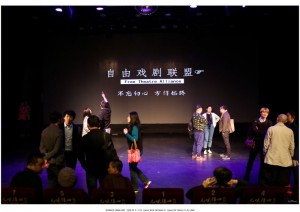
Time: 7:30 pm April, 18th, 2016
Address: Qinglan Theater, Beijing
Free Theater Alliance
Free Theater Alliance is an independent organization founded by 4 independent theater practitioners (Su Xiaogang, Sun Yangyang, Diao Wei, Liu Zheng). The group aims to diversify the theatrical works by offering a platform for experimental and independent theater works, including or crossing multiple art forms. On April 18th, Free Theatre Alliance was formally inaugurated with an opening ceremony attended by a large crowd of theater artists.
As partner of Free Theater Alliance, Ibsen International was participated to the opening. Artistic Director Fabrizio gave a speech discussing “why do we need experimental and independent theater ? “, expressing the artistic vision shared both by both organizations, and paving the way for future collaboration between the two.
123 Theater Project
One of the main point of the joint press-release was the launch of the 123 Theatre Project, a platform to promote independent performers and theater artists. For three days a week (Monday to Wednesday), Qinglan Theater will be available to independent companies and artists completely for free, and the whole amount of box-office revenues will be given to the invited company. This initiative is thought as an alternative support platform for fringe artists who, without any institutional support, struggle to find space and means to continue their artistic research.
Founders (From left): Su Xiaogang, Sun Yangyang, Diao Wei, Liu Zheng
Artistic Director Fabrizio Massini Giving a Speech
Directors invited to present their work within the 123 Theater Project(From left):
Hou Ying, Ding Yiteng, Liu Zheng
Directors invited to present their work within the 123 Theater Project(From left):
Su Xiaogang, Hou Ying
The Speech:
Thanks to Su Xiaogang and the Free Theater Alliance for inviting me and Ibsen International, it is a pleasure to be here.
My name is Fabrizio Massini, I come from Italy and I started doing theatre in a small independent group when I was 17 in my city, Florence. For me, discovering theatre was a revolutionary experience. It gave me the possibility to express my opinions and my thoughts about society, to be part of a group, and to belong to a community.
But although it meant so much to me, I experienced theatre as a dying art form: something with a long tradition, very precious, but about to die. Back in 2001 in Italy, theatres were closing, funding for theatre being cut, and the theatre audience was becoming smaller and smaller, and older and older. Something that needed to be protected because it was disappearing.
But then in 2009 I moved to China and my perspective changed. In Beijing, I have found an incredible enthusiasm for theatre, and a very lively theatre scene. Instead of closing down, theatres here were opening; a lot of young people, were starting to be involved in theatre; the audience was growing quickly.
Overall, what China gave to me, as a theatre person, was hope: theatre was not a dying art form for middle-aged people, but a vital energy that could bring people together, and create a dialogue between the artists’ community and society. In these 7 years, in a way, theatre has been doing better and better. It moved beyond its small circle and into the mainstream: theatre now is somehow a fashionable trend in China. And overall, I think it’s a very good thing, because it means that people are willing to gather together, and share.
However, as it is always the case with popular trends, something else happened: the logic of the market started to take over. Seven years ago, when I started doing theatre in PENGHAO or BJFF , there was a pure spirit of experimentation: the most important thing was to try something new, and share it with everyone. Recently, what I hear more and more, it’s about the market: “this is too strange, it’s not going to work”, “this is too avant-garde” “this has no market, forget about it”.
After working as a producer for a few years, I am aware that you need to confront reality: you cannot ignore that there is an audience in front of you, and what you show needs to pass their test. But there is something about this commercial logic that I cannot, and will not, accept: that market and community are one thing. For me, community and market are two very different things.
In my understanding theatre answers 2 basic needs. First, it asks us who are we as a community? What are our problems, what is important for us? Since ancient Greece, people would join theatre in the central square to debate these things together. It made them part of a community, and it still makes us reflect together on where we are going. Second, theatre asks each of us, as an individual: who are you, and what’s meaningful in your own life? Theatre is a very personal experience, that make us grow inside. A community is healthy when its members have a rich inner life.
In my humble opinion, the theatre scene in China is now at a crossroad. It has a great potential, and it now can talk to an even larger audience. But this larger audience is too often read as a larger market to satisfy, and the demands of the market are different from the needs of a community. The market requires low-risk products, so that it can make profit, without losing investments. This means that creativity is dangerous: original things sometimes confuse people, it requires them to accept something different from what they’re used to, it pushes them towards change. If we accept the market logic as the main principle to make theatre, it will be a great cultural loss, not only for the theatre community, but for society at large.
So, the questions I want to ask everyone tonight is: why do we need experimental and independent theatre? What can independent theatre do, that commercial theatre cannot? I think that experimental theatre asks questions that were never asked before. Commercial theatre gives familiar answers to familiar questions; it makes us feel comfortable, but it doesn’t bring us forward. I think that experimental theatre changes our perspective on the world, shows us the world as it could be, not as it is. And finally, and most importantly, while commercial theatre is interested in “paying customers” and “numbers”, independent theatre is about mutual support and community.
Since 2010, Ibsen International has been working in China with the generous support of the Norwegian Embassy. For six years we have been running a project called “Ibsen in China”, that tries to do just that: we support independent artists, both Chinese and international, to create original productions. In six years we produced 100 projects including drama, contemporary dance, contemporary opera and more. Some of the independent directors we supported, like Liu Zheng or Wang Chong, created very successful performances who toured all over China, and also abroad (Norway, Australia, Japan). It has been an incredible adventure, and I think it showed me 3 things: first, the Chinese audience is very open, curious, and welcome original productions; second, there are many talents that only need a chance to blossom; third, that if I listened to what many people told me, great performances like “Night Shift” wouldn’t have seen the light, and I wouldn’t be here tonight to share with all of you.
In conclusion, I want to congratulate the founders of Free Theater Alliance for what they’re doing: it’s brave, it’s noble, and it’s a gift to our community. I am sure that the “1, 2, 3 theatre” project can be a space of experimentation, sharing, and growing together: something that our society needs very much. On behalf of Ibsen International, I promise that we will do our best to put Free Theater Alliance on the map, and to keep doing what we do: connecting artists internationally to create exciting, original work.
To give a little example of our work, I want to show everyone a little video we did during one of our projects, “New Text – New Stage”. We invited 8 playwrights from 6 countries to China, to work together and write 8 original scripts. This was filmed in July 2015, after the first workshop. Afterward, we did 2 more workshops in Shanghai and Guangzhou. Now, the 8 scripts are ready, and we want to produce them all, in China and abroad.
Fabrizio Massini
April, 18th
